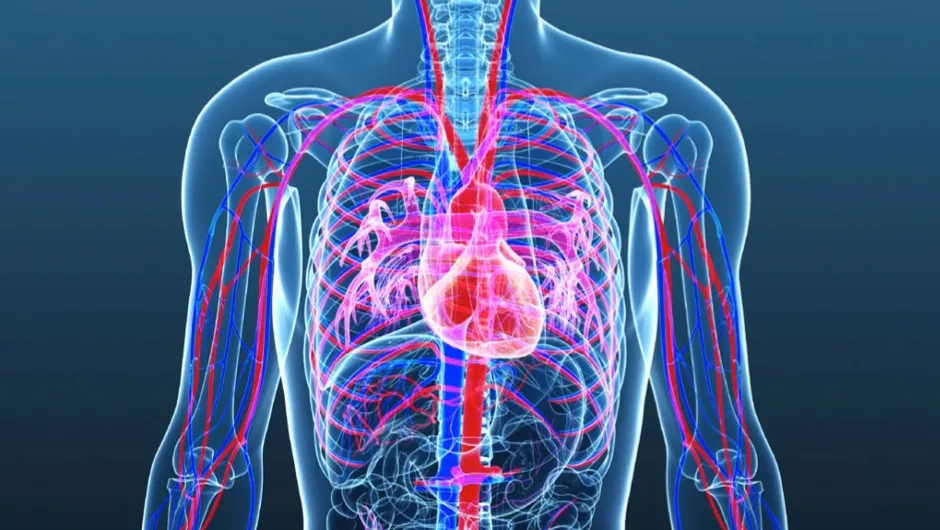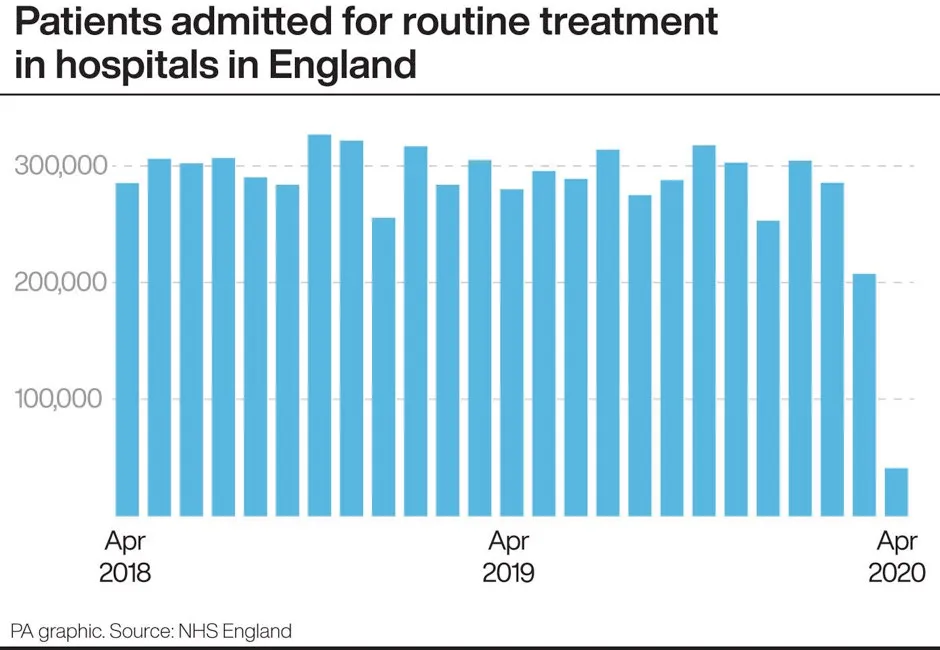Researchers working to analyse the link between coronavirus and cardiovascular diseases could have results within weeks, an expert has said.
Experts from across the UK will combine hospital data, information about health and lifestyle, genetic studies, and imaging and artificial intelligence techniques to understand how the virus affects the heart and circulatory system.
The aim is to improve care for people with heart and circulatory disease suffering from COVID-19, with support from the British Heart Foundation (BHF) and National Institute for Health Research (NIHR) for six flagship research programmes.
Read more about coronavirus and health:
- Coronavirus: high blood pressure could double risk of death
- Coronavirus: should I take zinc supplements to boost my immune system?
- BAME women account for more than half of pregnant COVID-19 hospital admissions
According to data from the Office of National Statistics, people with heart and circulatory diseases are disproportionately affected by COVID-19.
It has consistently shown heart disease to be among the most common pre-existing health conditions in people who have died with the virus in England and Wales.
The virus has also been shown to damage the heart and blood vessels, and increase the risk of blood clotting and inflammation, which can lead to heart attacks and strokes.
The research projects will address urgent questions, such as who is most at risk, how best to manage COVID-19 infection in people with pre-existing cardiovascular illnesses, and how to prevent the longer-term effects that the virus might have on people’s heart and circulation.
People with heart disease are at higher risk of dying from the virus and the risk for people with diabetes is two to three times higher than the general population
Professor Sir Nilesh Samani, BHF medical director
Professor Sir Nilesh Samani, medical director at the BHF, said: “This virus may be a respiratory infection, but the most common underlying health conditions in those who die are cardiovascular.
“People with heart disease are at higher risk of dying from the virus and the risk for people with diabetes is two to three times higher than the general population.
“We are also rapidly learning that the virus can have devastating effects on the heart and circulatory system and increase the risk of heart attacks and strokes.
“By awarding flagship status to these projects, we hope to mobilise resources and research effort behind studies that have the best chance of swiftly improving care and saving lives.
“The speed at which we’ve done this is testament to the strength of UK cardiovascular science, and could lead to results within weeks.”

In one project, datasets from hospitals, GP surgeries and cardiovascular registries will be linked to provide an insight into people with heart circulatory diseases who have suffered from coronavirus.
In another project, a team led from University College London (UCL) and the University of Bristol is linking data from large cohort studies to uncover which cardiovascular diseases, as well as genetic, demographic or lifestyle factors are associated with increased risk of COVID-19 infection and its severity.

Studies will also look at how the virus damages the heart and circulatory system.
Researchers led by UCL will set up a registry to track the heart health complications caused by COVID-19.
While other universities and hospitals led by investigators from Leeds and Oxford hope to follow people recovering for six months and use MR scans to assess longer-term damage to their heart and vital organs.
Scientists at the University of Oxford will use artificial intelligence techniques to assess CT scans to see if the virus causes long-term vascular inflammation.
They say this could lead to wider use of anti-inflammatory treatments and other medicines to lower people’s future risk of heart attacks or strokes.
Following a sharp fall in non-COVID-19 admissions to hospital, including for heart attack and stroke, researchers will investigate how the pandemic has affected care for people with heart and circulatory diseases.
Reader Q&A: Why is the heart slightly to the left in the chest?
Asked by: Adam King, Huddersfield
The heart is located fairly centrally beneath the breastbone, but it does protrude towards the left. This is because the heart’s bottom-left chamber (the ‘left ventricle’) is responsible for pumping oxygenated blood around the whole body, so it needs to be stronger and larger than the right ventricle, which only pumps blood to the lungs.
It’s this left ventricle that you can feel beating in your chest. One in 10,000 people actually have a mirror-image heart which points towards the right – a condition known as ‘dextrocardia’.
Read more:
